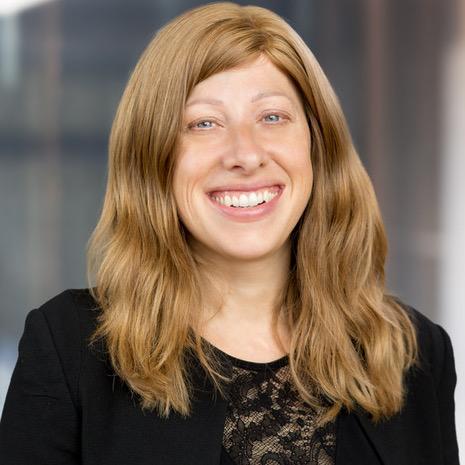
We are fortunate to have welcomed some new faces to Allard Hall this past fall as well as some familiar ones into new roles. Over the coming months, you’ll learn more about each of these faculty members and the important research and educational leadership expertise they bring to the Allard School of Law community.
Assistant Professor Alexandra Flynn sees cities as sites of everyday law that underpin the fabric of community and belonging.
“As a city, Vancouver is a perfect backdrop for the many topics I am interested in, especially Indigenous-municipal legal relationships, local neighbourhood decision-making, and the constitutional structure of municipalities.”
Which is why Professor Flynn was thrilled to have the opportunity to return to Vancouver, where she had previously practiced Aboriginal Law at Ratcliff & Company. Prior to this she practiced corporate law in New York and then served as Assistant Professor in the City Studies program at the University of Toronto.
Professor Flynn currently has a number of research projects underway. In collaboration with other researchers across Canada, she is studying housing supply and land use practices, including the important role played by First Nations in creating and managing affordable housing on their lands. She is also part of a team of researchers examining the personal property of vulnerably housed people. She is focusing on the “in between” spaces like cars, tents, and storage lockers as places where personal property is held, but where people do not have many rights.
This is alongside a multi-year SSHRC-funded project that looks at the legal relationships between First Nations and municipal governments. Professor Flynn described how this project developed:
“At first, I thought I would focus on how the duty to consult and accommodate operates in big cities, as municipalities are considered to be administrative bodies—unlike federal and provincial governments, which are considered to be the ‘Crown’. While this is still an important question, I have shifted my focus to try to understand what legal relationships between Indigenous communities and municipalities look like at the local level.”
Professor Flynn uses the example of the Humber River in Toronto, where Indigenous groups use portions of a park to perform ceremonies and plant traditional plants, without municipal authorization. While this is technically a breach of many by-laws, the city has not intervened.
“There are relationships there that are managed not in a traditional way the Canadian legal system usually recognizes.”
With little documentation and traditional research available to help support her research, Professor Flynn is enormously grateful for the strong relationships she’s built with Indigenous scholars, activists, and community members.
“As a non-Indigenous person, it would be deeply unethical for me to appropriate or claim knowledge from those I am learning from. This research must be respectful and reciprocal, or else it will be harmful and exploitative.”
Professor Flynn is finalizing two books, to be published over the coming year - Smart Cities for Canada is co-written with Mariana Valverde, and Micro Legal Spaces examines the unique legal structures of Canada’s neighbourhoods and communities.
Amidst all of her research activity, Professor Flynn remains passionate about teaching and mentoring law students at Allard Law.
“The students are the main reason why I love this job. Their questions and learning fuel my research and I learn a lot from them, too. I must stay current with live cases and examples to animate the subjects we cover in our classes.”
“Allard Law is a positive and intellectually vibrant place. As soon as I set foot here, I felt the energy both from students and faculty. This is my dream job.”
Professor Flynn has recently been speaking to media on the topic of municipal power during COVID-19. Here are two recently published pieces:
- “Use of municipal emergency powers has gone too far” (The Star)
- “Rethinking Municipal Power in the time of COVID-19” (The Province)
Visit Professor Flynn’s profile page to learn more about her and her research.


